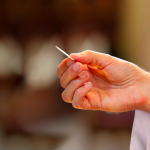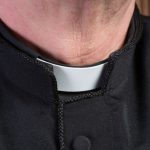Government Puts Church before Children

The Royal Commission into Institutional Responses to Child Sexual Abuse heard evidence relating to 4,444 alleged incidents of child sexual abuse involving 93 Catholic Church authorities over the period 1980 to 2015.
During the six decades since 1950, 7 percent of Australian Catholic priests were accused of abusing children, the Royal Commission found.
In its final report, the commission recommended that the criminal offence of failing to report child sexual abuse be created. And its 35th recommendation was that this offence apply to priests who fail to report incidents of child abuse divulged during confessions.
The Berejiklian government passed legislation last week that brought state laws into line with most of the Royal Commission’s recommendations. But, while the failure to report offence was enacted, the requirement that it be extended to the confessional was not.
Instead of taking this opportunity to put an end to a practice that enables child sexual abuse to continue, the Liberal National government stated that it’s putting off addressing the matter as it’s an issue that should be dealt with nationally at a Council of Australian Governments meeting.
And this move marks yet another victory for the religious right, as the state government panders to its desires at the cost of the well-being of innocent children.
It certainly can be done
Care Leavers Australasia Network CEO Leonie Sheedy questions why NSW attorney general Mark Speakman hasn’t shown the same leadership qualities as his counterparts in other states and territories.
The ACT passed legislation on 8 June that requires priests to break the seal of the confession and report abusers. South Australian attorney general Vickie Chapman revealed the following week that as of October the same law will apply in her state.
And Tasmanian attorney general Elise Archer announced last week that her state will be following suit.
However, while these jurisdictions have moved to implement the Royal Commission’s recommendation, Mr Speakman has said he thinks it shouldn’t be approached at the state level.
The NSW attorney general has also stated that the newly-created failure to report crime applies to clergy members, even though no measures have been taken to ensure this. While at the same time, he’s pointed out the state law that prevents them from having to report this information.
Section 127 of the NSW Evidence Act 1995 stipulates that clergy members aren’t required to report confessional information. This law also applies in most other Australian jurisdictions at present. And at the federal level, it’s contained under section 127 of the Commonwealth Evidence Act 1995.
A practice of looking the other way
Mr Speakman has also claimed that most of the information “churches have gained about child sexual abuse within these institutions have happened outside confessions.” But, Ms Sheedy points to one case that makes it quite clear why the law should apply to priests.
Former Queensland priest Michael McArdle stated in a 2004 affidavit that he had confessed to child sexual abuse more than 1,500 times in face-to-face confessions with other priests over a 25 year period. And each time he did so he was simply told to “pray more.”
McArdle said that he felt devastated after abusing a child, but after attending confession, “it was like a magic wand had been waved over” him.
“Nobody spoke up,” Ms Sheedy told Sydney Criminal Lawyers®. “They all averted their eyes and more children were put at risk.” And she further stated that it seems the NSW government is “protecting the church all over again.”
All is forgiven
The seal of confession is a centuries-old requirement of canon law – the law of the Catholic Church – that forbids priests from revealing what is said to them during confession. If a priest does disclose what is said, they then face excommunication from the church.
Catholic confession, or the Sacrament of the Penance, is a ritual where an individual confesses sins anonymously, and they then receive absolution – remission of the sin – from God via the priest.
So, while some argue that making the failure to report offence apply to information divulged during confessions would result in no one confessing to this crime, others point out that keeping the seal unbroken is a get out of gaol free card for child sex offenders.
And what is often overlooked is that the current system doesn’t require that members of the clergy report incidents of child sexual abuse to police when the victims reveal that it has occurred either.
Priests would rather serve time
However, Catholic Church leaders have recently gone so far as to publicly state that if the failure to report law does apply to religious confessions, then they’re prepared to break the law.
St Patrick’s Church Hill parish priest Michael Whelan told the ABC that if state laws were amended to require Catholic priests report on confessional child sex abuse information, then members of the clergy would rather go to prison than comply with the law.
And on Easter Sunday, Sydney Archbishop Anthony Fisher explained to a congregation that priests would rather face martyrdom and suffer punishment than break the seal of the confession. He added that confession “is threatened today both by neglect and attack.”
Incidentally, when Archbishop Fisher appeared at the Royal Commission he said that the response of Catholic Church leaders to allegations of sexual abuse amounted to “criminal negligence.”
Ms Sheedy said that this response from Catholic priests reveals their arrogance. “It shows that they do not respect the laws of our country,” she explained. “And they think that they are above the laws of NSW.”
It would also suggest that incarceration is a more acceptable price to pay than reporting the harming of a child to police.
The need for accountability
The effects of child sexual abuse can scar an individual for life. They can feel powerless, ashamed and lose trust in others. And the abuse can lead to anxiety disorders and substance use issues in later life.
To date the approach of the Catholic Church to systemic child sexual abuse has been to keep it to themselves, which has allowed this behaviour to continue unchecked. And now the state government is shirking on its responsibility to bring the church into line.
But, as far as Ms Sheedy is concerned, if the government fails to act on this issue it will pay for it in the next election. If the Liberal “party decides not to show leadership on this issue, they will lose the confidence and the votes of the community.”







